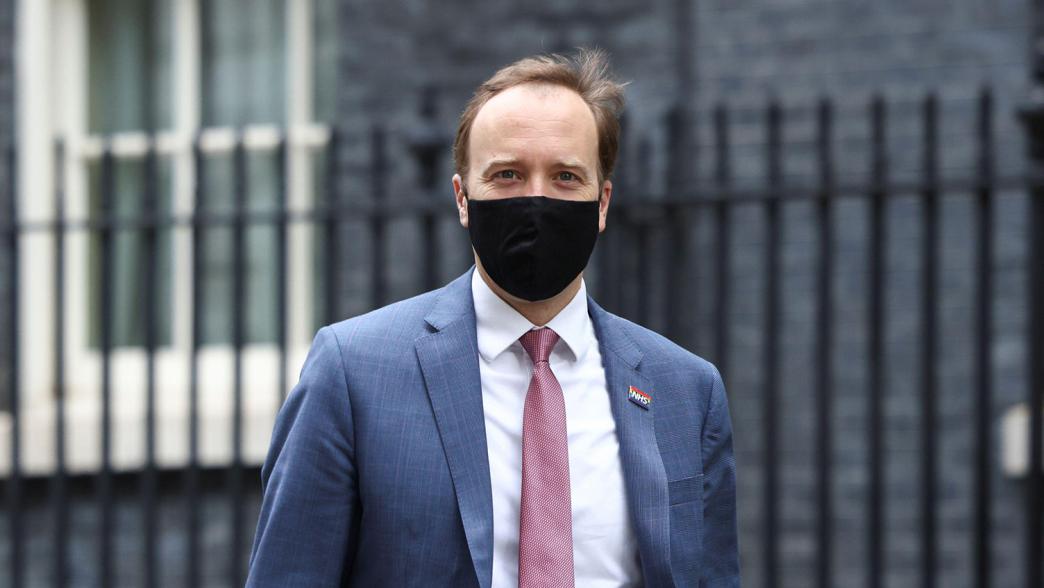Matt Hancock’s WhatsApp leaks should be a wake-up call for government
Matt Hancock’s messages reveal just how embedded WhatsApp is in the functioning of government.

While there will be much to pore over in Matt Hancock’s messages, the key detail is just how embedded WhatsApp is in the functioning of government. The government needs to show that it is able to manage this new reality, says Tim Durrant
The Telegraph’s cache of the former health secretary’s WhatsApp messages gives a new perspective on what was really happening inside government at the beginning of the pandemic. But as well as the content, what these files show is just how intrinsic WhatsApp is to the way the UK government and politics functions in the 2020s. This has been the case for some time – Conservative MPs used the messaging app to build coalitions and test ideas during the chaotic Brexit debates of 2016-19 – but the pandemic revealed just how widespread the app’s use has become. The question for government now is how it can deal with this relatively new, and unmanaged, way that ministers, special advisers and civil services do business.
Use of WhatsApp in government can help decision making
People in government use WhatsApp for the same reasons as millions of other people – it is quick, efficient and easy to use. It allows people to share key information quickly, with less hassle than sending an email or making a phone call. It can replicate other, informal conversations that would otherwise happen in the margins of a meeting, in a corridor, or in a car.
This was particularly relevant and useful during the early stages of the pandemic, when it was harder to get lots of people together for conversations and information needed to be transmitted particularly quickly. We can see from the leaked messages that ministers were expected to make decisions rapidly in the early phases of the pandemic. We can also see how ministers shared personal experiences, which informed their view of the successes and failures of government policy: Helen Whately, a junior health minister, talked about how needing a covid test for a family member meant she was able to be a ‘mystery shopper’ for the testing scheme, getting first-hand knowledge of how it was (or wasn’t) working.
These leaks also reveal the problems of WhatsApp in government
So WhatsApp use in government has its advantages. The question is how its use is managed and overseen, so that it does not exacerbate existing problems in the way government works. WhatsApp can mean that certain people are excluded from conversations because they’re not in the relevant group chat, or that people make decisions based on partial information that is more easily conveyed in a presentation or a proper piece of written advice.
There is also a question about how the information in WhatsApp conversations is recorded. What would once have been a spoken exchange is now often written down, which means they form an important part of the government’s record and should be treated as such. In our research on the use of WhatsApp in government last year, we found that even though WhatsApp messages on government business would be in scope of any freedom of information (FoI) requests submitted to a department, many departments do not have the procedures in place to search WhatsApp conversations for relevant information. Nor do they have good procedures to ensure that WhatsApp messages are preserved for posterity, as all relevant government records should be.
In the context of an inquiry looking into government decision-making, the need for proper records is clearer than ever. The Telegraph’s coverage of Hancock’s messages should push the government into making sure that ministers, special advisers and civil servants properly manage their use of WhatsApp and understand the obligations they face to protect government information. Key to this is making sure that government phones are used for government business – so any WhatsApp messages sent about government responsibilities are on government devices, rather than personal ones. This would also help those, like Hancock, who have left government – if all their government work is conducted on a government device, they can hand that back to officials when their tenure ends and be sure that they have discharged their duty to record and protect government information. Given ministers cannot be trusted to manage the divide between their personal discussions and the business of government, they should let others manage it for them.
We shouldn't have to rely on leaks to find out what happens in government
Today’s leak is of course only a partial view of what happened in DHSC during the early days and weeks of the pandemic. Hancock and the government have said that the messages published so far only show part of the picture. It is clear that other conversations were happening alongside the discussions on WhatsApp – in one exchange published by the Telegraph, one of Hancock’s special advisers asks for clarification of a decision made in a meeting that he did not attend.
So it is not yet possible to fully understand how much government business is done on WhatsApp, and how much is done via more traditional means, or how this balance has changed over recent years. More transparency by ministers and departments on how WhatsApp is used would help. And for the full picture of how government worked during the pandemic, we will have to wait for the full inquiry. But this leak shows how embedded WhatsApp is in government business – the government needs to show it can deal with this new reality.
- Topic
- Ministers
- Keywords
- Civil servants Ministerial code
- Political party
- Conservative
- Position
- Health secretary
- Department
- Department of Health and Social Care
- Public figures
- Matt Hancock
- Publisher
- Institute for Government